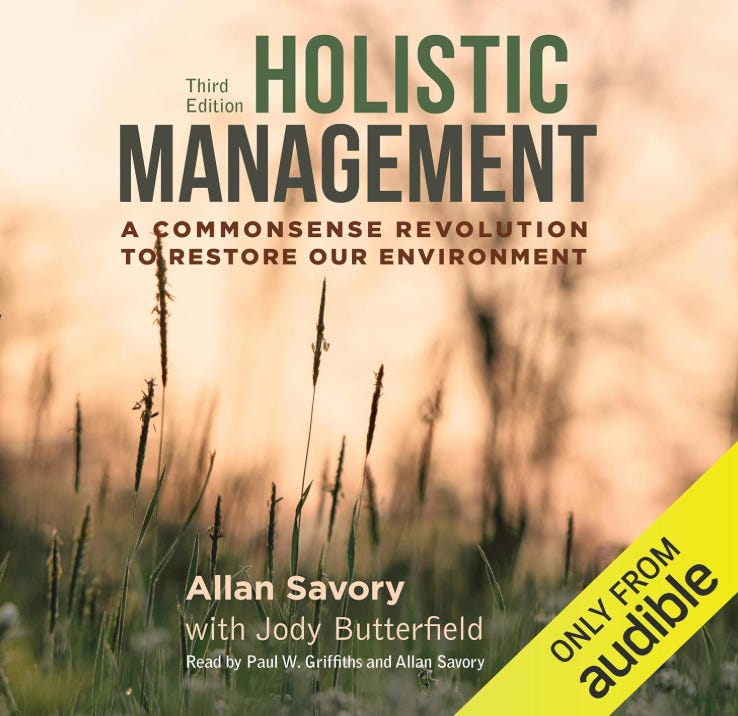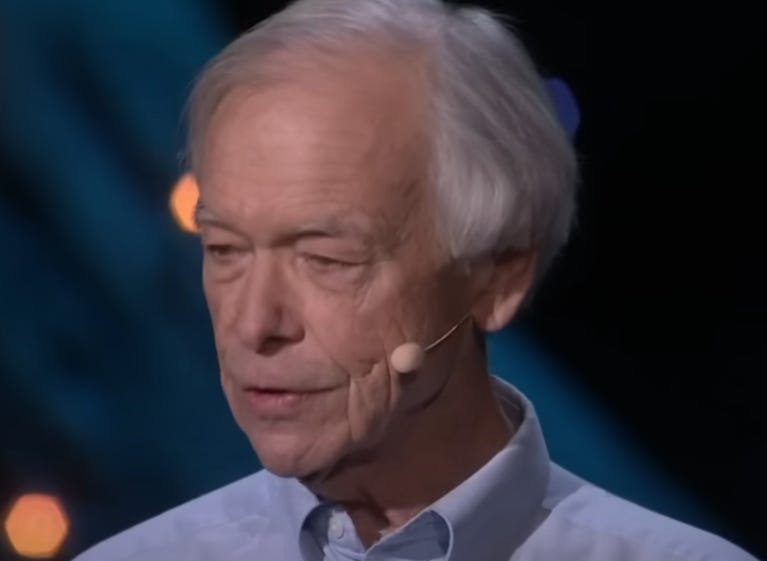Allan Savory: The Father of Regenerative Agriculture and...
A Life in Holistic Management and Global Change
🎉 A Tribute to Allan Savory on His 90th Birthday
Today, September 15, 2025, marks the 90th birthday of Allan Savory — the man whose ideas helped give rise to what we now call regenerative agriculture. Long before the term was popular, Savory’s life’s work centered on healing degraded landscapes, restoring biodiversity, and empowering communities to thrive through land stewardship. His holistic vision continues to shape global conversations about how humanity can both feed itself and restore the earth.
Few individuals have shaped modern land management as profoundly as Allan Savory. Born in Africa, tested in politics and science, and often criticized yet unrelenting, Savory dedicated his life to answering one of humanity’s most pressing questions: How can we heal the land while feeding the world?
Early Life and African Roots
Allan Savory was born in Southern Rhodesia (now Zimbabwe) in 1935. Surrounded by savannas and wildlife, he grew up observing the fragile balance between herds, grasslands, and water. His early career as a biologist and game ranger exposed him to the ecological devastation that overgrazing, desertification, and poorly managed land could cause.
What struck Savory most was the mystery of the expanding deserts: land once fertile and lush was turning barren, despite scientific advice and government-led grazing policies.
Controversial Beginnings
In the 1950s and 1960s, while working as a wildlife officer, Savory initially believed that reducing animal populations would allow the land to recover. His policies led to the culling of thousands of elephants and other animals — an act that he later publicly regretted, calling it the biggest blunder of his life.
The land did not heal. It worsened. This devastating outcome set Savory on a lifelong quest: finding a model for restoring grasslands.
Birth of Holistic Management
Savory’s breakthrough came from observing migratory herds of wild grazers like bison and wildebeest. These animals moved in tight groups, grazing intensely, trampling the soil, and fertilizing it — but always moving on. This natural cycle seemed to regenerate the land instead of depleting it.
From these insights, Savory developed Holistic Management™, a decision-making framework that integrates:
Planned rotational grazing (mimicking wild herd movement).
Rest and recovery periods for soil and grass.
Adaptive management — decisions that consider ecological, social, and economic factors together.
He argued that properly managed livestock could reverse desertification, improve soil fertility, and even sequester carbon at a massive scale.
Global Influence
Savory emigrated to the United States in the 1970s, continuing to develop and teach his methods. In 2009, he co-founded the Savory Institute, dedicated to advancing regenerative land management worldwide.
Today, his influence spans continents:
North America: Ranches adopting holistic grazing report improved soil health, water retention, and biodiversity.
South America: Projects in Patagonia have rejuvenated overgrazed lands.
Africa: His methods are helping communities combat desertification and restore wildlife corridors.
Australia: Holistic grazing models are being adapted to arid ranching landscapes.
The Savory Institute also developed the Land to Market™ verification program, linking regenerative agriculture to consumer demand by certifying supply chains for meat, dairy, wool, and leather.
Criticism and Debate
Savory’s work has drawn both passionate support and sharp criticism.
Supporters hail him as a visionary, pointing to thousands of acres restored under holistic grazing.
Critics argue that his claims about reversing climate change through livestock are overstated or under-supported by peer-reviewed science.
Despite the debate, Savory has remained steadfast: he sees experimentation and results on the ground as the ultimate proof.
Philosophy: Beyond Agriculture
At its heart, Savory’s work is about more than grazing. It’s about decision-making. Holistic Management encourages land stewards to ask:
How will this action affect the land in 100 years?
Does it balance ecological, economic, and social needs?
Does it align with a holistic context for families, communities, and ecosystems?
This philosophy has inspired not only farmers and ranchers, but also business leaders and policymakers searching for sustainable frameworks.
🌟 Legacy and Vision
Now in his late 80s, Allan Savory continues to speak, teach, and inspire. His 2013 TED Talk on fighting desertification has been viewed millions of times and remains one of the most influential talks on regenerative agriculture.
His life embodies contradiction and redemption: from wildlife officer culling herds to global champion of livestock as ecosystem healers; from colonial Rhodesia to an international movement.
Why Savory Matters to Us Today
In an era of climate crisis, soil depletion, and food insecurity, Allan Savory offers a radical yet practical message:
Healing land is possible.
Livestock can be part of the solution.
Decisions must be holistic, not siloed.
Whether or not one agrees with all his claims, Savory has reshaped the conversation about land stewardship. For farmers, ranchers, and land managers, he provides both a challenge and a hope: that the earth can be healed, one managed pasture at a time.
Here’s Allan Savory’s book on Audible: Amazon
Book Description:
Fossil fuels and livestock grazing are often targeted as major culprits behind climate change and desertification. But Allan Savory, cofounder of the Savory Institute, begs to differ. The bigger problem, he warns, is our mismanagement of resources. Livestock grazing is not the problem; it's how we graze livestock. If we don't change the way we approach land management, irreparable harm from climate change could continue long after we replace fossil fuels with environmentally benign energy sources.
Holistic management is a systems-thinking approach for managing resources, developed by Savory decades ago after observing the devastation of desertification in his native Southern Rhodesia (now Zimbabwe). Properly managed livestock are key to restoring the world's grassland soils, the major sink for atmospheric carbon, and minimizing the most damaging impacts on humans and the natural world.
This audiobook updates Savory's paradigm-changing vision for reversing desertification, stemming the loss of biodiversity, eliminating fundamental causes of human impoverishment throughout the world, and climate change. Reorganized chapters make it easier for listeners to understand the framework for holistic management and the four key insights that underlie it.
This long-anticipated new edition is written for new generations of ranchers, farmers, ecological and social entrepreneurs, and development professionals working to address global environmental and social degradation. It offers new hope that a sustainable future for humankind and the world we depend on is within reach.
PLEASE NOTE: When you purchase this title, the accompanying reference material will be available in your My Library section along with the audio.
Education & Training Note:
If you’d like to get trained in Holistic Resource Management (HRM) you can subscribe to our Track #2 educational channel, as I have received my Holistic Resource Management Foundation Certification. We can help you line up an instructor for your ag team or help you find a seat in the next Foundation Class.
The Best For Last!!!
Here is Allan’s famous TED Talk:
This YouTube Video is 22 minutes and 19 seconds:
HERE!
✒️ Until next time… I am… Phil Wilson… And, here’s to living an Herbal Lifestyle With You!




